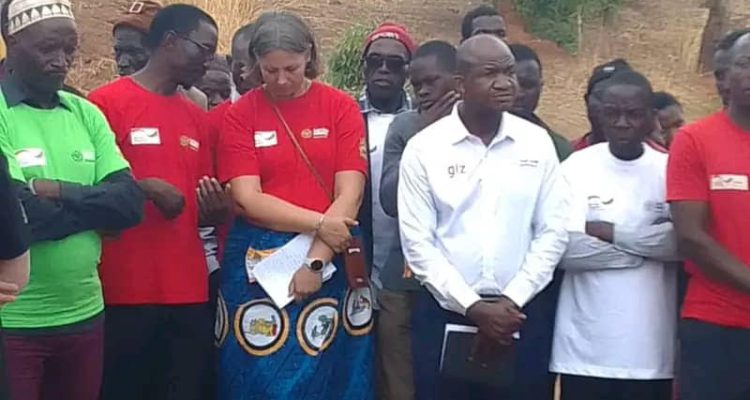
Self Help Africa (SHA), through its Food and Nutrition Security Program (FNSP), has significantly reduced stunting cases in Dedza District over the past decade.
The program, which has been implemented in collaboration with the German Cooperation through GIZ, has achieved a reduction in stunting rates from 52% to 42.3%, according to SHA’s Livelihood Programs Manager, Blessings Kambombo.
The achievements were disclosed during the closeout event for the program, which has been operational in Dedza for ten years.
Elida Lyford, one of the program’s beneficiaries, lauded the initiative for its transformative impact on her family.
“Through the program, we can now afford food with diverse nutritional value,” she said, highlighting how the project has improved her household’s food security and overall well-being.
Senior Chief Tambala emphasized the importance of ensuring the program’s sustainability. He urged communities to continue implementing the knowledge and skills gained during the initiative to maintain the positive outcomes achieved.
“We must take ownership of what we have learned and ensure that the gains of this program are not lost,” said Senior Chief Tambala.
FNSP’s Team Leader at GIZ, Dr. Martina Kress, expressed satisfaction with the program’s outcomes in all targeted areas of Dedza.
“The results we have seen in the project implementation areas are truly commendable. This demonstrates the power of collaborative efforts in addressing food and nutrition challenges,” Dr. Kress remarked.
The FNSP was implemented in the areas of Traditional Authority Kasumbu, Chauma, Chilikumwendo, and Tambala in Dedza District. The initiative focused on improving nutrition and agriculture while incorporating resilience interventions to help communities better withstand challenges such as climate change.
Funded by the German Cooperation through GIZ, the program supported vulnerable households in adopting sustainable agricultural practices, enhancing dietary diversity, and promoting overall resilience.
As the FNSP officially concludes, its decade-long impact in Dedza District serves as a testament to the importance of targeted interventions in tackling food and nutrition security challenges.
The program’s success, marked by a significant reduction in stunting rates, highlights the need for continued efforts to ensure that these gains are preserved and built upon for future generations.














